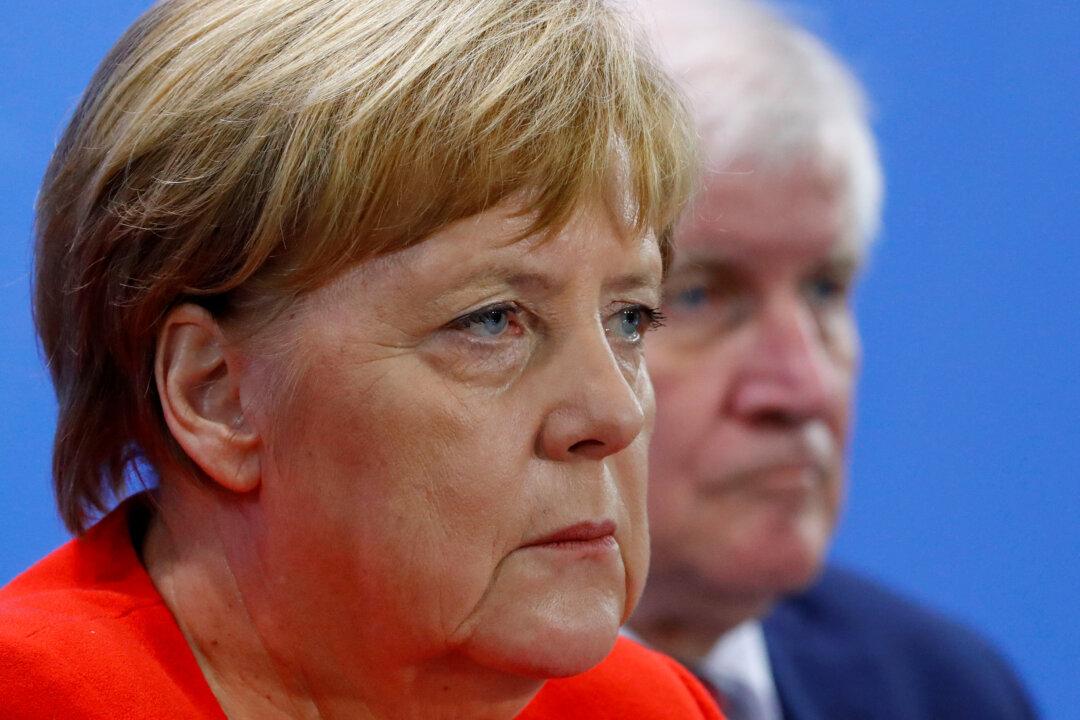BERLIN—The fate of German Chancellor Angela Merkel’s unwieldy six-month-old government hangs in the balance as the nation’s three coalition parties seek again to resolve a dispute over Germany’s scandal-tainted spymaster.
The coalition parties agreed on Sept. 18 to transfer spy chief Hans-Georg Maassen to the interior ministry, following accusations that he harbors far-right views for questioning the authenticity of video footage showing radicals hounding migrants in the eastern city of Chemnitz.





